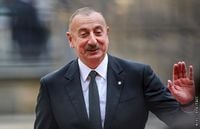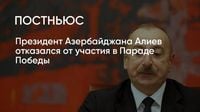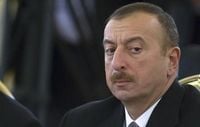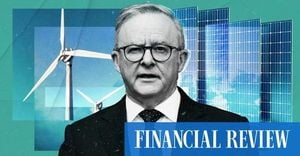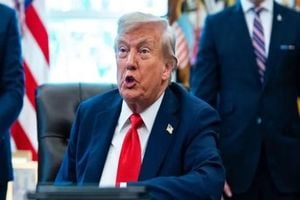Azerbaijani President Ilham Aliyev has officially canceled his attendance at the Victory Parade in Moscow, which commemorates the 80th anniversary of the victory in World War II. This announcement was made by Yuri Ushakov, aide to Russian President Vladimir Putin, who conveyed the news to Life journalist Alexander Yunashev on May 7, 2025. "Aliyev will not fly in, unfortunately. They explained that he must participate in internal events dedicated to Heydar Aliyev," Ushakov stated, highlighting the reasons behind the last-minute decision.
The cancellation of Aliyev's visit marks a significant moment in the context of Azerbaijan's relations with Russia, which have been notably strained in recent months. In February 2025, Azerbaijan took a bold step by liquidating Rossotrudnichestvo, a Russian cultural organization, and closing the Russian House in Baku. Additionally, the country declared State Duma deputy Nikolai Valuev a persona non grata following controversial statements he made, further straining ties between the two nations.
Initially, it was expected that 29 foreign leaders would attend the Moscow parade, including Aliyev. However, with his cancellation, the list has already shrunk by two names, as the President of Laos, Thongloun Sisoulith, also withdrew due to illness from coronavirus. Some leaders, such as Chinese Chairman Xi Jinping and Serbian President Aleksandar Vucic, have already arrived in Moscow for the event.
The backdrop to Aliyev's decision is marked by a tragic incident involving an Azerbaijani passenger plane that crashed in December 2024, resulting in the deaths of 38 people, including three crew members. The aircraft was reportedly shot down by a Russian air defense system while flying over Chechnya, leading to accusations from Aliyev that Russia was attempting to cover up the incident. He demanded accountability and transparency from the Russian government, stating that the airspace over Chechnya should have been closed during military operations.
Ushakov's comments about Aliyev’s cancellation were shared on Yunashev's Telegram channel, indicating a level of disappointment regarding the absence of the Azerbaijani leader at such a significant event. The Kremlin had previously expressed hopes that Aliyev would attend the parade, especially after he accepted Putin's invitation in March. This acceptance came amid a cooling of relations between the two countries, primarily due to the aforementioned plane crash.
Despite the absence of Aliyev, over 20 other leaders are expected to participate in the Moscow celebrations. Notable figures include Belarusian President Alexander Lukashenko, Slovak Prime Minister Robert Fico, Armenian Prime Minister Nikol Pashinyan, and Brazilian President Luis Inacio Lula da Silva, among others.
In a related development, the Ukrainian Ministry of Foreign Affairs has urged foreign nations not to send their military personnel to participate in the May 9 parade. The ministry emphasized that Ukraine is currently facing an unprovoked war, and the Russian military has committed numerous war crimes during its aggression against Ukraine. The statement highlighted the moral implications of marching alongside an army that has perpetrated atrocities, suggesting that doing so would equate to sharing responsibility for the suffering inflicted upon Ukrainian civilians and soldiers.
As the date of the parade approaches, the absence of Aliyev, alongside the backdrop of rising tensions and historical grievances, casts a shadow over the event. The significance of the Victory Parade, which is intended to honor the sacrifices made during World War II, is complicated by contemporary geopolitical realities.
While the Kremlin may have hoped for a show of unity among former Soviet states, Aliyev's decision not to attend reflects a broader trend of discontent among some leaders regarding Russia's actions on the international stage. The Azerbaijani president last attended the Victory Parade in Moscow in 2015, and his absence this year could signal a deeper rift in relations that may have lasting implications for both Azerbaijan and Russia.
In conclusion, the cancellation of Aliyev's attendance at the Victory Parade is emblematic of the current state of Azerbaijani-Russian relations, marked by tension and historical grievances. As the world watches the events unfold in Moscow, the implications of these diplomatic decisions will undoubtedly resonate beyond the immediate context of the parade.
